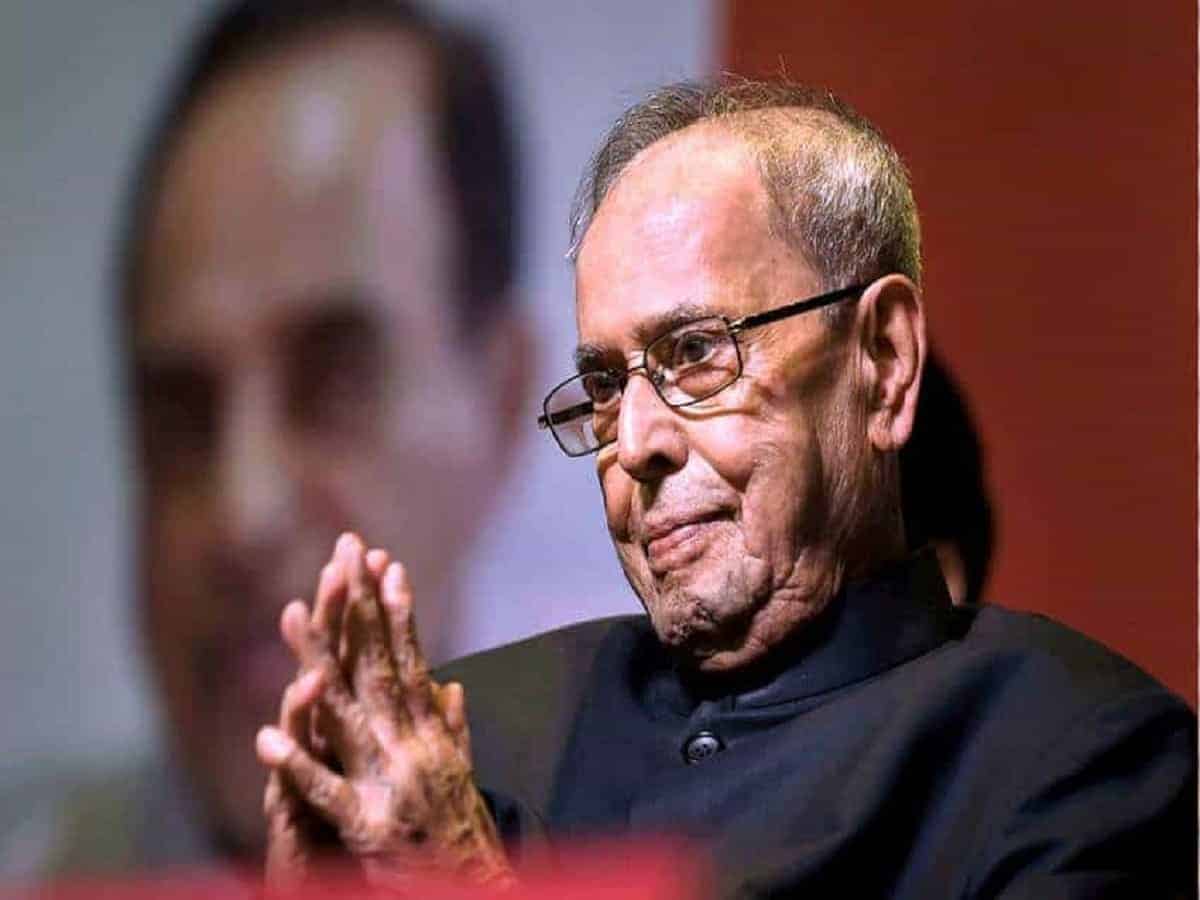New Delhi: Born on 11th December 1935, Pranab Kumar Mukherjee served as the 13th President of India from 2012 until 2017. He was born in a Bengali family in Mirati, a village in the Bengal Presidency of British India. He earned MA degree in Political Science & History and LL.B. degree from University of Calcutta.
Mukherjee was among the last of Congress leaders to have worked with Indira Gandhi who had granted him ticket to Congress Party. However, during the controversial Emergency of 1975–77, he, like several other Congress leaders was accused of committing gross excesses.
After Indira Gandhi’s assassination in 1984, Mukherjee had a confrontation with Rajiv Gandhi for becoming the successor to Indira Gandhi. He was sidelined from the party following which he formed his own party, the Rashtriya Samajwadi Congress, which merged with the Congress in 1989 after reaching a consensus with Rajiv Gandhi.
After Rajiv Gandhi’s assassination in 1991, Prime Minister P. V. Narasimha Rao appointed him Planning Commission head in 1991 and foreign minister in 1995. Mukherjee played a principal role in Sonia Gandhi’s ascension to the party’s presidency in 1998.
Mukherjee decided to retire from politics after leaving the presidency due to “health complications relating to old age.” His term expired on 25 July 2017. He was succeeded as President by Ram Nath Kovind.
Mukherjee addressed a Rashtriya Swayamsevak Sangh (RSS) event in June 2018 which created controversies about his political intentions.
Finance Minister
Pranab Mukherjee was first elected as the Finance Minister of India during the Indira Gandhi government in 1982. During his first annual budget presentation in 1982-1983, his work was noted as he successfully returned the last installment of India’s first IMF loan.
Mukherjee was removed from his position as Finance Minister by Rajiv Gandhi in 1984, even though he was noted to be the best Finance Minister in the World that year, according to a survey of Euromoney magazine.
Mukherjee again became the Finance Minister of India in 2009.
Mukherjee implemented many tax reforms. He scrapped the Fringe Benefits Tax and the Commodities Transaction Tax. He implemented the Goods and Services Tax during his tenure. These reforms were well received by major corporate executives and economists.
In 2010 Mukherjee was awarded “Finance Minister of the Year for Asia” by Emerging Markets, the daily newspaper of record for the World Bank and the International Monetary Fund (IMF).
Minister of External Affairs
Mukherjee was appointed the External Affairs Minister of India in 1995. Under his leadership, India was made “Full Dialogue Partner” of ASEAN as part policy initiated by Narasimha Rao. Mukherjee left the position the following year.
Mukherjee’s second term began in 2006. He supervised signing of the U.S.-India Civil Nuclear Agreement with the US government and then with the Nuclear Suppliers Group.
Commerce Minister
Mukherjee has thrice served as Commerce Minister of India. His first tenure was during the Indira Gandhi government from 1980–82 then in 1984. During his third tenure in the 1990s he contributed significantly to the negotiations leading to the establishment of the World Trade Organization.
Minister of Defence
Manmohan Singh appointed Mukherjee as the Minister of Defence of India when the Congress came to power in 2004. Mukherjee held the post until 2006. He expanded co-operation with the United States during his tenure and inked the ten-year Indo-US Defence Framework deal. Mukherjee maintained Russia as the India’s ‘topmost’ defence partner.
Awards
Mukherjee received Bharat Ratna – India’s highest civilian award in 2019 and second highest award – Padma Vibhushan in 2008. He also authored several books.

